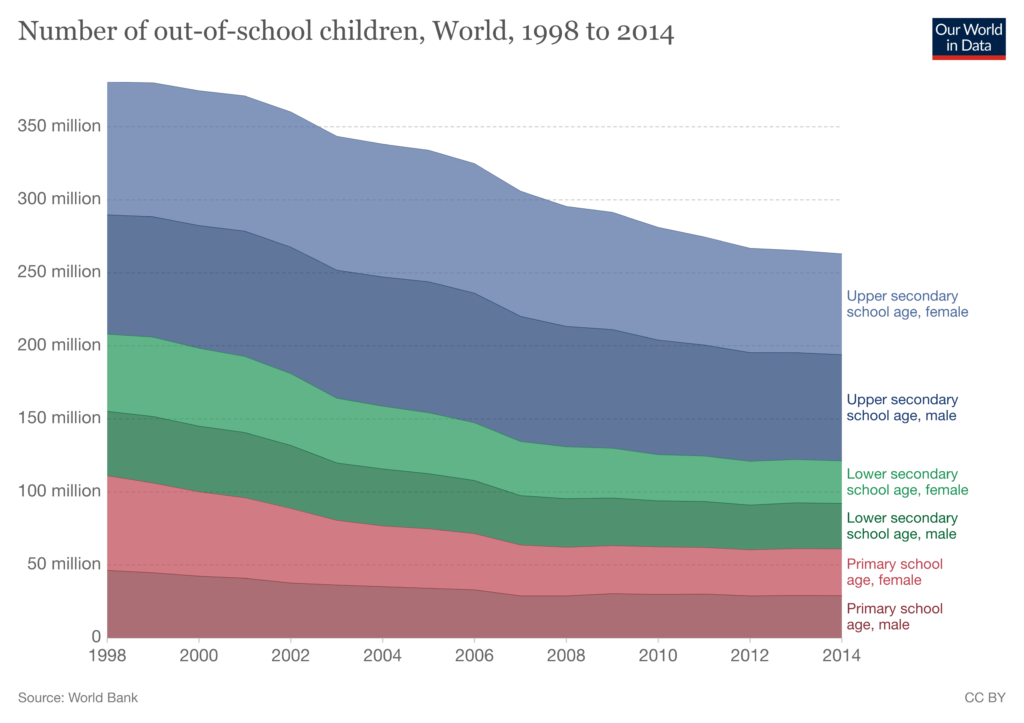8 Ways Immigration Improves Quality of Life

According to Wikipedia, “Quality of life (QOL) is the general well-being of individuals and societies, outlining negative and positive features of life.” Also, quality of life is one of the 10 drivers to find fulfillment in life. Then, does immigration provide a better quality of life? Most of the time, this is true. That is the primary reason people immigrate. So why doesn’t everyone want to immigrate? Even if they know there is a better quality of life for them and their future generations, should they decide to do so? These are tough questions, and there are many reasons. In this post, I will discuss 8 ways immigration improves quality of life. And we’ll also explore why many don’t want to immigrate. There are valid reasons. It’s not a straightforward choice.
“Everywhere immigrants have enriched and strengthened the fabric of American life.”
– John F. Kennedy
Contents
Why Is Immigration Important For Global Economy?
Just like trade is an integral part of the global economy, the movement of human resources is integral to driving the global economy. From an overall global economy, restricting either trade or the immigration of people from one country to another is both detrimental.
Then why do countries restrict immigration? There are several reasons for that, which may include trying to control population, overburdening social infrastructure and religious diversity. Most of the time, countries restrict immigration so that it is not a drag on the social infrastructure at the expense of their taxpayers.
But immigration brings skilled labor into the workforce, and entry of a younger population into an ageing population. Failing which, the GDP of any country can likely stagnate or even start declining.
8 Ways Immigration Improves Quality of Life
Did you know Canada is the best country in the world for quality of life? Countries with a higher quality of life also scale up higher on the happiness index. This means people are happier in countries scoring high on a variety of factors like GDP per capita, social support, healthy life expectancy, freedom to make life choices, generosity and corruption. Find out more about the 15 top happiness index countries in the world.
Let’s try to understand more about the 8 reasons immigration provides a better quality of life.
Social Infrastructure
Primary Education
Primary education is the foundation of the human development index. And this is where developing countries struggle. According to data compiled by Our World in Data, about 263 million children were out of school in 2014. And more than half of the out-of-primary school children are from Sub-Saharan Africa. Here also, girls take the brunt. Did you know that in many developing countries, girls do not get an education? They prefer boys to girls in almost all aspects, including education. This sounds inhumane but is true. Every child has a basic right to education, but many developing countries deny them this right. In addition, it may even force them into child labor or even human trafficking.

Healthcare
Let’s take the current Covid-19 situation in India for an example. India has been struggling with its second Covid-19 wave. Since it has been having record-smashing global highest caseload per day. And soon heading towards the highest per-day mortality rates in the world. There are several drivers likely in this situation. Essentially, a country with 1.37 billion people needs a rapid vaccination program. Especially when they have been able to vaccinate only under 10% of its population till date. And that is a Herculean task for a country like India with limited resources. So, immigrating to countries like Canada with better publicly funded universal healthcare is an opportunity for a better quality of life.
Justice
Social infrastructure also includes institutions that maintain law and order and provide justice. We can say there is a relationship between justice and corruption. In countries with high corruption, justice might be difficult to get for the poor or marginalized. So, justice for the average person could be a reason to immigrate from a country with a higher corruption index to a country with stronger institutions for law and order.
Social Security
In developing countries, there is hardly any social safety net or security system. Many people are daily wage earners with no or minimal government social security systems. If there is an exigency, then there is nothing one can turn to for relief. In countries like India, hundreds of thousands of farmers commit suicide every year because of poverty, who are deep in debt with no or minimal incomes.
Governance
Good governance is the backbone of an excellent social infrastructure system. To have good governance, we need a good political system and a “government of the people, for the people and by the people,” as Abraham Lincoln quoted.
Higher Education
Did you know that you can study for free in Germany, even for higher education? Few countries provide free higher education, and they are mostly European countries. Germany is one country that even provides free higher education to foreign students outside of the European Union. Affordable or free higher education is not only a challenge in developing countries, but it can be a challenge in many Western countries like the US, the UK, Canada and Australia, among others.
Job Opportunities
One of the biggest drivers of immigration is job opportunities. You may learn more about the top 5 countries for job opportunities, which are great for immigration. Also, you may read about how to immigrate to the United Kingdom, Canada, and Germany in these posts.
Equality
Moving from a developing country to the US, one of the most discernible differences to observe is equality for all. They treat everyone equally and with respect, irrespective of the job they do, whether a janitor or a CEO. India has an infamous caste system stemming from the ages. It divides society and compels people to be treated differently. India is one of the few countries in the world that still allows human scavenging with minimal or no protective gear. And these human scavengers come from the lowest of the caste strata. The Indian society has treated them as untouchables through the ages, and still continues to do so even today, mostly in rural India.
Freedom
Freedom is invaluable. It’s a gift that not all countries in the world truly provide. The freedom to live life the way one wants is something that mostly the developed Western world attracts with. The US is a living example. No wonder the phrase is “living the American dream”.
Environment
Clean water and air are precious. Again, not all countries can provide that. If a pristine environment attracts you and you want to get away from the pollution in your country, immigration might be something to consider.
Resources
Last, in the long run for our generation and our future generations, we might want to settle down in a country that has adequate resources per capita for its population. It essentially boils down to the total resources of the country, which can be in terms of natural, capital and human. Economies that have abundant resources will probably have higher GDP per capita as well.
Why Many Don’t Want to Immigrate?
But given all the pros around immigration, there are reasons people don’t want to immigrate as well. There are a variety of them, but in this post we’ll try to discuss a few of the most prominent ones.
Family
First, it is usually our family. We have our immediate and extended families. And most times, it is not possible to leave behind ageing parents, especially when it is difficult or impossible to take your parents along with you. This is likely the most important factor. For me, it was the most painful part of my immigration.
In countries like China, where the current generation is mostly single-child for each couple, there are 4 dependent parents. With this, it is near impossible to immigrate out of China for most folks. But in recent years, China has grown exponentially and soon will become the strongest economy in the world, which brings opportunities and has improved the quality of life for its masses.
Cultural Ties
Second, it is cultural ties. Once someone immigrates, it is likely they will start losing their culture to their next generations. And with time, most likely the subsequent generations lose their native cultures. I have seen many who don’t want to immigrate primarily because they don’t want their next generations to forgo their native cultures.
Ignorance
Third, there are also reasons pertaining to ignorance due to which they don’t want to immigrate. Most of the times people don’t take the time to research or seek counseling about immigration. There is a ton of information available in the public domain, including on the internet, to research and make an informed call. Also, many times people are ill-informed about all the positive sides of immigration. And they have developed their own prejudices or pre-conceived notions based on misinformation.
Fear
Fourth, it is fear. This key reason many back-off even after they have made a lot of progress. It happened to me once. I wanted to immigrate to Canada many years back, but backed off at the last moment because of fear. Fear of the unknown. And fear of unpredictability and uncertainty. Also, we have self-doubt about whether we can survive trying to make a start from scratch in a new country with no support.
Nationalism
Fifth and last, I have also heard of nationalism being a reason for not wanting to immigrate out, even if there is a great opportunity that one can come across. We all love our home countries, and sometimes that turns into nationalism, that I will probably prefer serving my home country and not immigrate. Perfectly fair, for sure.
Conclusion
In this post, we discussed 8 ways immigration improves quality of life. In a nutshell, immigration is a very personal topic and a choice. We can discuss pros and cons, but in the end we base our decisions on multifaceted drivers. It is difficult indeed, very tough. There is no right or wrong answer. Also, there are so many people who immigrate but later come back to their home country after some years or after retirement. So, life is about choices. And we base our choices sometimes on rationale and sometimes on emotions. And both rationale and emotions are two sides of the same coin, the key underpinnings of of lives.

Leave a Reply
You must be logged in to post a comment.